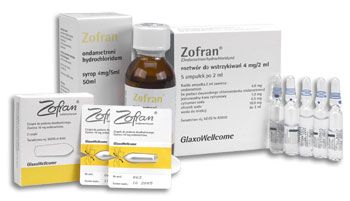Top Class Actions’s website and social media posts use affiliate links. If you make a purchase using such links, we may receive a commission, but it will not result in any additional charges to you. Please review our Affiliate Link Disclosure for more information.

The family alleges that in direct result of the mother ingesting Zofran, the baby girl had developed heart defects while in her mother’s womb.
Like other similar Zofran injury reports, the mother was prescribed Zofran to treat her morning sickness during a latent period of her pregnancy. The birth defects lawsuit was filed in the U.S. District Court of Northern Ohio on June 10, 2015, by Patrick R. and Valerie R., after discovering that Zofran may have contributed to their daughter’s death in 2006.
Zofran (Ondansetron) is a highly effective anti-nausea medication that was approved by the FDA in 1991. It was meant to treat nausea and vomiting in patients who recently underwent surgery, or were going through chemotherapy or radiation treatment. While it has never been approved to treat pregnant women, Zofran has been popularly prescribed for morning sickness.
While it is not illegal for doctors to prescribe medications for off-label purposes, it is illegal for pharmaceutical companies to advertise them for such.
In 2012, GSK settled a federal, civil false claim lawsuit alleging GSK had promoted Zofran for the treatment of morning sickness in pregnant women despite being approved only for post-operative nausea, and that GSK had paid doctors kickbacks for prescribing Zofran. In 2012, GSK settled that lawsuit along with three similar lawsuits regarding other GSK products for $1.043 billion.
Even before the lawsuit settlement, concerns of Zofran birth defects have been prevalent over the years, focusing on the risks of birth defects developing during the first trimester.
In one recent study published in August 2013, over 900,000 pregnancies were analyzed from the Danish Medical Birth Registry, which found that children exposed to Zofran were two to four times more likely to suffer septal defect. More recently, in October 2014, a study was published in the medical journal Reproductive Toxicology that found Zofran significantly increased the risk of birth defects.
Despite these findings, the U.S. Food and Drug Administration recently rejected a petition to change Zofran’s drug category, saying in an October 2015 statement that these studies “do not support a determination that there is an increased risk of fetal adverse outcomes.”
Overview of Zofran Birth Defects Allegations
Valerie had been prescribed Zofran in 2006, nine days before her daughter was born on March 17, 2006; she was prescribed this drug to treat her morning sickness.
When her daughter was born, the baby’s heart beats began to slow down and she was later diagnosed with a right ventricle heart defect and was immediately placed in the intensive care unit.
The baby girl died three days after she was born. Still mourning from their daughter’s death, the plaintiff couple have since become activists to raise awareness about ventricle heart defects, as well as the dangers Zofran poses on unborn children.
According to the allegations raised in the couple’s lawsuit, GlaxoSmithKline had illegally promoted Zofran to treat morning sickness, when it was not approved to do so. Additionally, the company failed to warn the couple that Zofran could possibly cause cardiac and other major birth defects to develop in unborn fetuses.
While in this case the drug was prescribed at a late stage during pregnancy, most Zofran complaints allege that the drug was prescribed during the first trimester of pregnancy, which is the most vital stage of development for the unborn fetus.
The plaintiff’s lawyers state that GlaxoSmithKline had the civil responsibility of warning their clients and other Zofran patients of all potential side effects, because they rely on the accuracy of the given information.
Ultimately, Patrick and Valerie are suing GlaxoSmithKline for negligence, false advertisement, concealing information, and misrepresenting a product. They are seeking compensatory and punitive damages.
Their Zofran lawsuit joins a growing number of Zofran heart defect lawsuits that have been recently filed by families who are facing similar injuries. Each of the plaintiffs allege that the company had failed to warn patients and doctors of these birth defect risks in order to protect the market value of their product.
Do YOU have a legal claim? Fill out the form on this page now for a free, immediate, and confidential case evaluation. The birth defect attorneys who work with Top Class Actions will contact you if you qualify to let you know if an individual Zofran lawsuit or Zofran class action lawsuit is best for you. [In general, Zofran lawsuits are filed individually by each plaintiff and are not class actions.] Hurry — statutes of limitations may apply.
Get Help – It’s Free
Join a Free Zofran Birth Defects Class Action Lawsuit Investigation
If you or someone you know took Zofran while pregnant and had a baby with a birth defect, you or this person may have a legal claim. See if you qualify by filling out the short form below.
A Zofran birth defect attorney will contact you if you qualify to discuss the details of your potential case at no charge to you.
Oops! We could not locate your form.
ATTORNEY ADVERTISING
Top Class Actions is a Proud Member of the American Bar Association
LEGAL INFORMATION IS NOT LEGAL ADVICE
Top Class Actions Legal Statement
©2008 – 2024 Top Class Actions® LLC
Various Trademarks held by their respective owners
This website is not intended for viewing or usage by European Union citizens.












